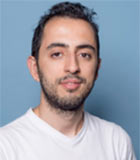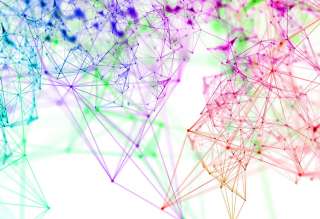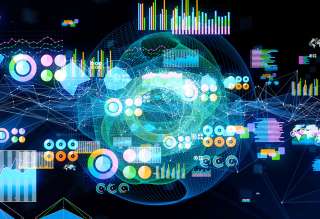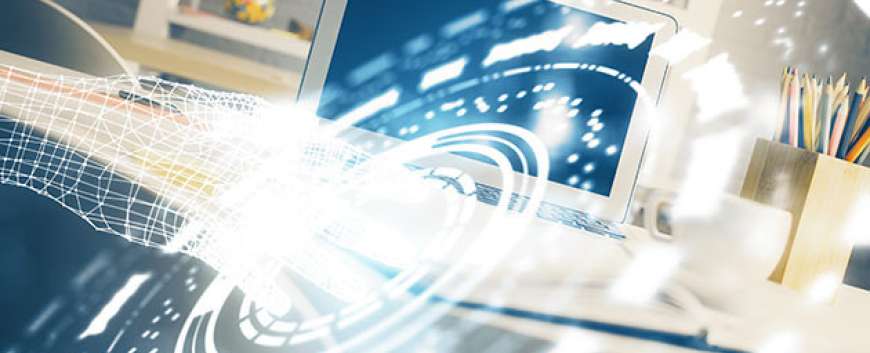SPS-DSI (DEGAS) Webinar: Edge Varying Graph Neural Networks and Their Stability
Date: 25 April 2024
Time: 3:00 PM (Paris Time)
Presenter(s): Elvin Isufi
DEGAS Webinar Series is an event initiated by the Data Science Initiative (DSI) of the IEEE Signal Processing (SP) Society. The goal is to provide the SP community with updates and advances in learning and inference on graphs. Signal processing and machine learning often deal with data living in regular domains such as space and time. This webinar series will cover the extension of these methods to network data, including topics such as graph filtering, graph sampling, spectral analysis of network data, graph topology identification, geometric deep learning, and so on. Applications can for instance be found in image processing, social networks, epidemics, wireless communications, brain science, recommender systems, and sensor networks. These bi-weekly webinars will be hosted on Zoom, with recordings made available in the IEEE Signal Processing Society’s YouTube channel following the live events. Further details about live and streaming access will follow. Each webinar speaker will give a lecture, which is followed by Q&A and discussions.
Abstract
Graph neural networks are de facto the machine learning tool for graph data. Recent years have seen a surge of interest in developing and analyzing novel architectures. Most of the time these solutions fall under the framework of a message-passing neural network, which despite popular groups only a part of the available solutions. In the first part of the talk, I will discuss an alternative general class of GNNs named EdgeNet, which unifies several other state-of-the-art graph neural networks (GNNs) through the concept of EdgeNet. An EdgeNet is a GNN architecture that allows different nodes to use different parameters to weigh the information of different neighbors. By extrapolating this strategy to more iterations between neighboring nodes, the EdgeNet learns edge- and neighbor-dependent weights to capture local detail. In writing different GNN architectures with a common language, EdgeNets highlights specific architecture advantages and limitations, while providing guidelines to improve their capacity without compromising their local implementation. In the second part, I will use the EdgeNet framework to analyze the stability of different GNN architectures to graph perturbations. I will discuss that (i) all GNNs within the EdgeNet framework are stable to topological perturbations and (ii) GNNs with fewer degrees of freedom in their parameter space, linked to a lower representational capacity, are more stable. With this analysis, I aim to shed light on the role of the graph topology in these results and to investigate a few handles we can consider when designing GNN architectures.
Biography

Elvin Isufi received the Ph.D. degree in electrical engineering from the Delft University of Technology, The Netherlands, in 2019 and the M. Sc. and B. Sc. in Electronic and Telecommunication Engineering from the University of Perugia, Italy, respectively in 2014 and 2012.
He is an Assistant Professor in the Faculty of Electrical Engineering, Mathematics and Computer Science of the Delft University of Technology, The Netherlands and co-director of AIdroLab -the TU Delft AI Lab on water networks. Prior to this, he was a Postdoctoral Researcher in the Department of Electrical and Systems Engineering of the University of Pennsylvania.
His interests lie in the intersection of signal processing, mathematical modeling, machine learning, and network theory, particularly in processing and learning from data on graphs and higher-order structures. He received the 2022 IEEE Signal Processing Society (SPS) Best PhD Dissertation Award and paper recognitions at the IEEE CAMSAP 2017, DSLW 2021, DSLW 2022, and ICASSP 2023. Elvin Isufi is a member of the IEEE SPS Signal Processing for Communication and Networking Technical Committee, and Youth Professional Committee. He serves as Associate Editor for the IEEE Transactions on Signal Processing, has held the same role for Elsevier Signal Processing, and is with the organizing committee of the 2024 Graph Signal Processing Workshop.












